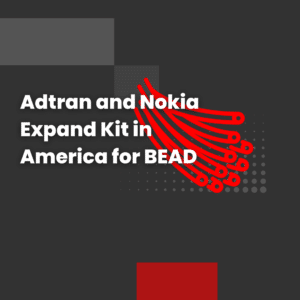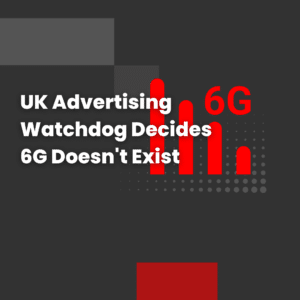Seven American tech giants including Meta, Microsoft and Amazon have notified the European Commission that they all meet the critera to be considered ‘gatekeepers’. This criteria and category were set last year when the EU passed both the Digital Markets Act and Digital Services App. The law is intended to promote healthy competition and ban some of the more forceful forms of targeted advertising and misleading practices.
As well as the American giants, Asian companies Samsung and TikTok owner ByteDance also announced meeting the criteria. Despite this, TikTok disputed its inclusion. Other companies such as Booking.com also stated an expectation to fall into the gatekeeper category by next year.
What Makes a Company a Gatekeeper?
A company is considered a gatekeeper by multiple factors. Their annual turnover within Europe has to be at least €7.5 billion within the last three financial years. Companies can also be considered by having a fair market value of at least €75 billion in the last financial year in at least three member states of the EU. The companies must also have served more than 45 million monthly active end users and more than 10,000 yearly active business users in the EU over the last three years. The criteria were decided specifically to include the biggest players in the field, to cover large online platforms that act as ‘gatekeepers’ in digital markets.
The acts and category will allow the EU to focus on some of the more pressing tech controversies, such as pre-installed apps, that favour the software of the provider over others.
”Europe is completely reorganising its digital space to both better protect EU citizens and enhance innovation for EU start-ups and companies.”
Thierry Breton, EU Commissioner for the Internal Market
The EU will have 45 days to assess the the submissions of the seven qualifying companies, and decide whether or not they should be designated gatekeepers of specific platform services. Any designated companies will then have six months to comply with the DMA’s rulebook.
The rulebook include allowing end users to easily uninstalled pre-existing apps and change default settings on operating systems, virtual assistants or web browsers that will steer them to the products and services of the gatekeeper and provide choices for key services. End users must also be permitted to install third-party apps or app stores that use the operating system of the gatekeeper. As well as this, it must be as easy to unsubscribe from a gatekeeper’s core platform as it is to subscribe. This means no more tiny unsubscribe buttons, or pages upon pages to navigate through just to stop a subscription.
The DMA rules also outline an interoperable future for messaging apps. This will hit Apple hard, that deliberately prevent their default messaging app from being used on Android for competitive reasons.
For online advertisements, companies must be able to access the performance-measuring tools and as performance data of the gatekeeper’s. Business users must also be allowed to promote their offers and complete contracts with customers outside the gatekeepers platform, and gatekeepers must provide business users with access to all data generated by their activities on their platform.
As well as this, gatekeepers will be banned from using data ripped from other business customers using their platform to offer a competing service. An example of this is preventing Amazon from getting the scoop on rival sellers using its platform with access to data generated by their activities.
Gatekeepers also won’t be able to rank their own products and services in a better light than those of third parties- a hit to Google more specifically.
Meanwhile, app store owners Apple and Google won’t be able to force developers into their own payment systems. They won’t be allowed to track the activities of end users beyond the scopes of their own platform for the purpose of heavily targeted advertising. That one’s for Meta to think about.
Despite the rules being set in place for now, some fair counter-arguments may be made within the next 45 days and later six months.
For example, Apple defend their walled garden in the name of quality. It wants to maintain a high standard of user experience, thus dictating the app stores, services, and payment devices on it’s platform.
Device makers such as Samsung want to differentiate on more than just the hardware it uses. This is more challenging due to every tablet and smartphone that isn’t an Apple device running on Android. This means it’s products come with pre-installed Samsung software.
Google holds a more weighted argument, however, recognising that it already gives users a choice of default browser and appstore on its devices, and make a note that Amazon’s Fire OS is simply a modded version of its operating system. Microsoft also give Windows customers a choice of browser when first launching, and default apps such as emails, maps and document editing are all up to the user.
TikTok, who argued their inclusion in the first place, stated that despite meeting the quantitative criteria, they fall short of overall requirements set out. This is on the requirement that the gatekeeper must have an ”unavoidable platform to conducting online business in the EU,” and be an ”entrenched” gateway between consumers and businesses.
Will the arguments made fall on deaf ears? Most likely. The DMA has been developed for years and is only now in full force, so it’s unlikely the EU will change.
Non-compliance is no option for these companies either. Violations will incur a huge fine of up to 10% of the gatekeeper’s total worldwide annual turnover, and 20% as a repeat offender. Periodic penalties of up to 5% of daily turnover are also in the EU’s roster.
”Consumers will have more services to choose from, more opportunities to switch providers, and will benefit from better prices and high quality services. Innovative companies will no longer be prevented from reaching new customers. That is what the DMA is all about.”
Thierry Breton, EU Commissioner for the Internal Market



